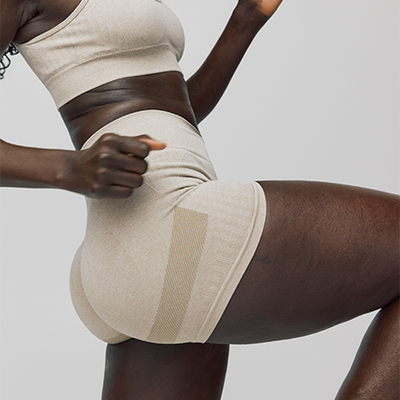
In this article /
Menstruation, monthly cycle, period. All of these are terms to describe a natural cycle that occurs routinely throughout much of our lives, and yet many of us find ourselves still talking in code when it comes to our cycles.
We use terms like “on the rag,” “aunt flow,” and “shark week” to describe our periods, as if there is something to hide, but there really isn’t.
Hiding the topic of menstruation in a cloud of secrecy and code words participate in keeping this topic treated as a taboo subject in society. Topics that are taboo often come attached with stigma and shame, as well as a ton of misinformation – an incredibly unfortunate state seeing as how about half of the world’s population menstruates.
But don’t fret just yet, things are starting to change!
A Revolutionary Step Forward for Menstrual Equity
The past few years have been a revolutionary step forward when it comes to removing the stigma around menstruation in society. Countless people have spoken out in many different ways about menstrual shame and stigma; some even doing so through social media, like Rubi Kaur who famously posted about her period on Instagram, or Kiran Gandhi who ran a marathon while free-bleeding. Periods have become an active conversation in media, art, business, etc. Many articles have been released in the past few months highlighting the amazing steps being taken around the world. One articled explained why 2015 is the year of the period, and major news outlets such as Newsweek and Huffington Post have covered the fight to de-stigmatize menstruation in society once and for all.
While many are working hard to de-stigmatize menstruation, it wasn’t always this way; in fact, there are some very interesting “herstory” facts from the past that would shock you!
A Brief History Lesson in Menstrual Care
In the good old days, there were countless different cultural practices surrounding menstruation that were based largely on myths. For example, in many parts of the world, women would leave their families during their periods to join other women in a “menstrual hut” where they would share stories and rest. However, this still happens in some cultures and sometimes results in fatalities.
Menstruation was also seen as very powerful in many cultures. For instance, in Hinduism, the great mothers created the universe from “clotted substances” and in Mesopotamia, the goddess Ninhursag used a mixture of clay and menstrual blood to make humans. In Egyptian and Celtic cultures, menstrual blood was thought to turn morals into gods and goddesses.
But of course, menstruation wasn’t always seen in a positive light. As history progressed, a more patriarchal view of menstruation emerged. Influential men like Aristotle and Hippocrates thought that menstruation was something toxic that must be avoided. For centuries, there was a prevailing negative opinion among many cultures surrounding menstruation; for example, some thought menstrual blood would turn wine sour, wither crops, and even dull steel.
The last several hundred years have unfortunately given menstruation a bad rep, but the way menstruation has been viewed has slowly begun to shift.
Period Care Options from the Past to Present
Like the attitude of periods, the options for menstrual care have experienced dramatic changes as well. While disposable products have been on the scene for some time, the first pads were nothing like what we have today, but rather bulky contraptions with suspenders and period belts holding them in place.
Another option was the tampon which was popularized in the 1930s and for many women it was a new way to deal with their periods. Tampons were seen as more freeing and discreet.
Interestingly enough, the reusable menstrual cup, with its many benefits, was also introduced in the 1930s but did not gain in popularity like tampons and pads, as disposable products seemed to represent the cultural climate at the time. More and more women are becoming more comfortable learning about the benefits of alternative options for menstrual care, including reusable pads and menstrual cups, like the DivaCup. This increased comfort means that they are also sharing their experiences with their friends, families and followers in life and online.
The DivaCup is proud to be part of these important changes surrounding menstruation in society.
It is amazing to see just how far we have come in society today, but that’s not to say we couldn’t do so much more! Menstruation needs to be an open conversation in society among everyone.























